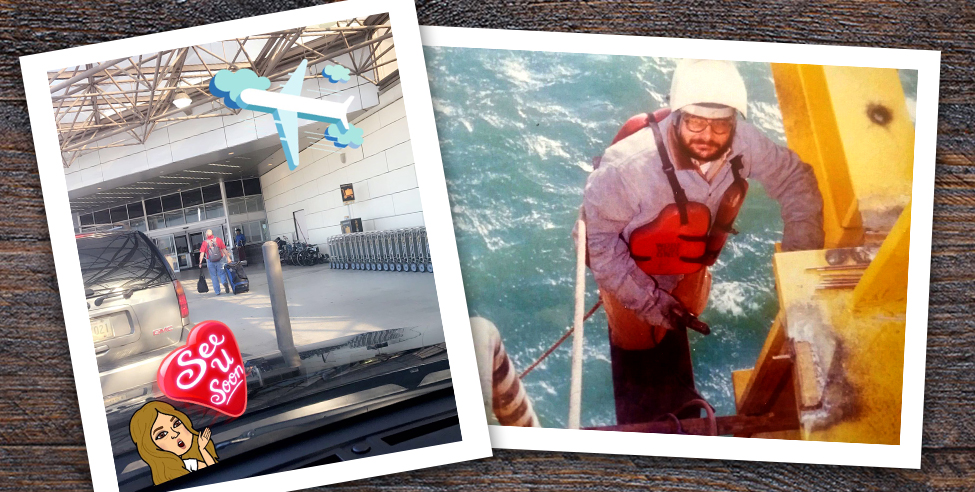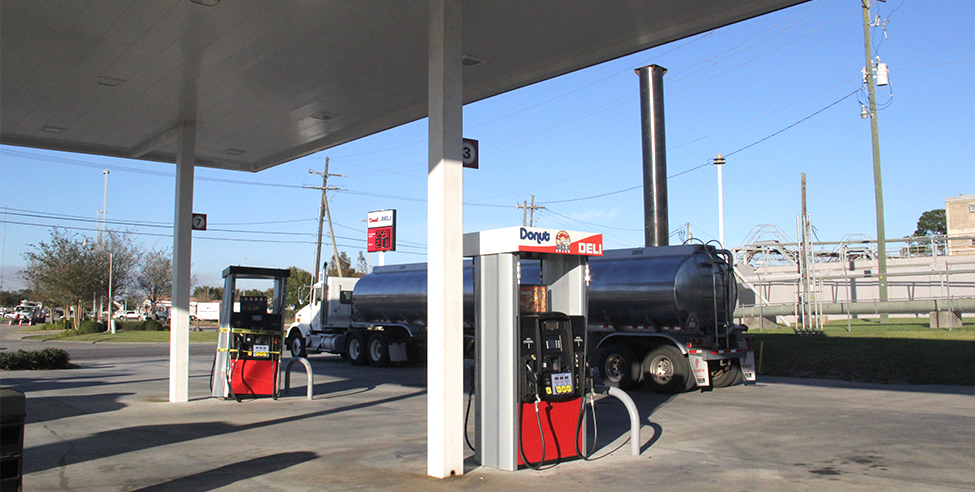Offshore Work // Families at Home

by Rachel Klaus, co-features editor The stories of work off-shore in the oil and gas industry in South Louisiana are often told— long, often dangerous stints away from home; but those lesser known are of the families who stay at home and support them. For Heather Stevens of Thibodaux, the holidays can be tough, especially since her husband is working offshore in Mauritania, Africa.Heather’s husband, Colt, works for Weatherford, one of the largest multinational oilfield service companies in the United States. Together, Colt and Heather have three children: 5-year-old twins Ana and Ady and 1-year-old Vander. And while Heather says her girls understand why their father is away, they still have mini-meltdowns from time to time when they are missing him. “The girls understand that their daddy is at work and that he does this for us,” Heather says. In addition to being the only parent when Colt is away, Heather also has her own business Belle Visage, a women’s clothing and skin care boutique in downtown Thibodaux. “I don’t sugarcoat it because it is hard,” she says. “Besides my business, I do makeup for weddings on some weekends, and when he is gone, I rely on my family members to help with the kids.” When Colt is offshore he is not only five hours ahead, but he is not allowed to use bandwidth for things like FaceTime when he is on the rig or drill ship. Heather says she thinks one day her children will completely understand why he works away most of the time, and sometimes she has to remind herself that she understands too. “Everything my husband and I do is for our family,” Heather says. “We want our children to have a great education and long-term stability. We hope one day that he won’t have to do this, especially as the kids get older.” Like Heather’s children, John Lefort, 30 of Cutoff, missed his dad too. Lefort’s father, Philip, worked as a welder offshore for Danos until John was a sophomore in high school and then he began work overseas for various contractors another 14 years working his way up to project manager for construction. “When you are real young, like 5 or 6, you catch on to what is going on,” Lefort says. “You understand and you wait for them to come in. It’s a hard thing for a kid when your dad is only there for truly half of your life.” Lefort’s father typically worked 14 days on and 14 days off, and sometimes 30 on and 30 off. But he says his dad always made up for the time lost when he was home. While his dad was gone, Lefort’s mom took care of both parenting roles. He says she did a good job, but every kid still needs a father figure. “As a child of a parent that works offshore, when you have a good job, the money is great,” he says. “You get to spend time together when they are there, but it’s hard when they are not there when you need them.” Colt Stevens leaving to work offshore. Heather and Colt Stevens with Ana, Ady and Vander. Colt Stevens playing with Van on break from working offshore. Colt Stevens, in from offshore, helping with one of his twins’ baseball games. Heather Stevens owns downtown Thibodaux boutique Belle Visage in addition to parenting three children while her husband Colt is offshore. Ana and Ady often help mom, Heather Stevens, at her Thibodaux boutique, Belle Visage. Heather Stevens takes over parenting Ana, Ady and Van while her husband Colt Stevens is working offshore. John Lefort with his dad, Philip, who worked offshore while he was growing up. Philip Lefort working on a rig offshore.
Fueling Life // Gaubert & Waguespack oil

by Taylor Gautreaux, co-features editor The Bayou Region’s oil and gas industry dominates life in South Louisiana. From the local infrastructure to the job market, our communities are largely dependent upon the activities of this industry. “If you go to the town of Houma now and you know what it used to look like, it’s obvious what the oil field has done,” says Nic Schaff, a sales representative for Gaubert Oil Company. In many ways, the Bayou Region developed as a result of the industry’s prosperity. “Our schools are here to teach the children of the people who work in the oil field. We have restaurants to feed them. We have hospitals to care for them,” Schaff says. “These towns were built because of the industry and its workers.” The state is ranked second in the country in crude oil and gas production, as well as petroleum refining capacity. With nearly 18 percent of the country’s oil supply passing through Louisiana parishes, these natural resources allow the state to make contributions on a national level as well. “I think if you really look back at the history of the oil and gas industry as far as exploration, you’ll find that a lot of innovations used worldwide have come directly out of this region,” Schaff says. Louisiana is home to several startup companies working to advance technology for the industry. Improvements in the performance of oil drilling and production quality have also been made. However, the state has experienced about a 20 percent drop in crude oil production since 2013, according to Louisiana’s Department of Natural Resources. “It’s really impacted buying habits, which has affected everything else,” says Albert “Al” Waguespack Jr., president of Waguespack Oil Company. “People aren’t spending extra money because they’re having to save it to pay for the basics.” He adds that the industry has gotten slightly better over the past couple of months, but 30 to 40 percent of supply boats remain out of service. “Unfortunately, it seems it will be like this for a while,” Waguespack says. “The prediction of where oil and gas is headed changes every day.” The uncertainty of the industry’s future is due to low oil prices globally. Schaff says that it’s largely based on decisions that governments in countries like Saudi Arabia, Iran and Russia are making. Despite the industry’s decline, companies such as Gaubert Oil have continued business by finding alternate ways to operate. “We’ve diversified into other industries such as construction and transportation,” Schaff says. “We’re not solely relying on the oil and gas industry as far as drilling activities go.” He adds that the company employs nearly 350 people and has never laid anyone off due to the industry’s fluctuation. “As a workforce, we are very reliant on the oil and gas industry,” says Schaff. “But we are also innovative. We’ll always find solutions to get by.”
